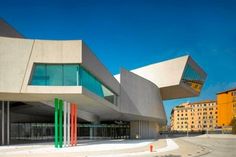 PhD or Postdoc position, Rome
PhD or Postdoc position, Rome
Rom, Bibliotheca Hertziana
Deadline: Feb 28, 2018
The Department of Prof. Dr. Tristan Weddigen at the Bibliotheca Hertziana – Max Planck Institute for Art History, Rome, seeks applications for
a doctoral or a postdoctoral position in the framework of the research initiative “Rome Contemporary”.
Applicants from art history and related disciplines, such as history, exhibition history, digital art history, architectural history, urban history, gender studies, art market studies, film studies, theater studies, and cultural studies, are welcome.
We are offering a one to two-year position starting as soon as possible. Candidates in art history wishing to start a PhD are invited to obtain their degree from the University of Zurich.
The research initiative:
The Bibliotheca Hertziana’s new research initiative “Rome Contemporary” proposes to reconsider the significant contribution of the Roman art scene to the history of the twentieth and twenty-first century. Challenging the common assumption that the city lost its far-reaching importance in the art field from the French Revolution onwards, the initiative tackles the lacunary knowledge of the former West which still largely conditions today’s historiographies of modern and contemporary art.
By surveying artistic and cultural productions from the visual arts, theatre, cinema and architecture, which emerged in Rome in relation to international debates and concerns, the initiative seeks to reposition the city within its shifting frame of reference. In this sense, the contemporary dimension of the Roman artistic and cultural scene is brought to the fore. Against the grain of the modern and contemporary topoi of deterritorialization and fluidification, and contradicting the historiographical trend towards uniformization reinforced by the rise of global perspectives, the initiative aims at emphasizing the historical and spatial situatedness of artistic and cultural production in Rome, with respect to: first, the urban fabric, a distinctive palimpsest of accumulated history, which imposes site and time-specificity as a pressing concern; secondly, the city’s social, political, cultural and institutional conditions; thirdly, its contact zones, networks and thought collectives.
With its focus on the contemporary dimension of the Roman art scene in the twentieth and twenty-first century, “Rome Contemporary” serves as a research hub, connecting local with international perspectives on the city through formats ranging from reading groups to workshops, from field seminars to lectures. The initiative comprises a significant component of digital art history which will be developed in collaboration with the University of Zurich.
In the framework of the initiative, possible subjects of study might include – but are not limited to – artistic and exhibition practices, art criticism and publishing; art collectives and collaborations; public and private collections; the art market; history of institutions; history of the fascist regime and its memory; history and effects of colonialism, wars and migrations; urbanism and public space; terrorism; Italian theory; feminism; ecology; the shift from Fordism to Post-Fordism and the impact of globalization; questions of historization (preservation, citation, canonization, and translation).
Prerequisites and offer:
– Master / PhD degree in one of the above-mentioned disciplines;
– international academic experience;
– interest in archival research;
– ability to work independently as well as collegially;
– proficiency in Italian and English required; working knowledge of German preferred;
– PhD / postdoctoral project proposal related to the themes of “Rome Contemporary”.
The successful candidate is expected to conduct his/her research at the Bibliotheca Hertziana, and to be involved in planning and running collaborative activities. Working space, and a travel budget will be provided. Depending on specific individual conditions, the Max Planck Society offers doctoral candidates a funding contract, which combines the academic freedom of a scholarship with the security of a contract of employment, while postdocs receive a fixed-term contract of employment. Concerning remuneration and standard social benefits, both types of contract follow the model of the civil service collective agreement (TVöD Bund) or a similar treatment in accordance with Italian law. The Max Planck Society wants to increase the share of women in all areas, in which they are underrepresented, and thus explicitly invites them to apply. Furthermore, the Max Planck Society is committed to increasing the number of individuals with disabilities in its workforce and therefore encourages applications from such qualified individuals.
How to apply:
Please send the following application materials as a single PDF-document by February 28, 2018, to: bewerbungen(at)biblhertz.it, subject “Rome Contemporary”
Prof. Dr. Tristan Weddigen (Executive Director)
Bibliotheca Hertziana – Max Planck Institute for Art History
Via Gregoriana 28, I-00187 Rome
– Short cover letter
– CV, including list of publications
– A description of your proposed research topic related to the “Rome Contemporary” initiative, including bibliography
– Names and contact details of two references.
Shortlisted candidates will be invited for interviews at the end of March 2018. Content-related enquiries may be addressed to Maria Bremer, PhD: bremer(at)biblhertz.it; administrative enquiries to Ms. Susan Neumann: neumann_s(at)biblhertz.it
Further information under http://www.biblhertz.it/en/research/research-projects-of-the-institute/rome-contemporary/
Source : https://arthist.net/archive/17215

Leave a Reply
You must be logged in to post a comment.